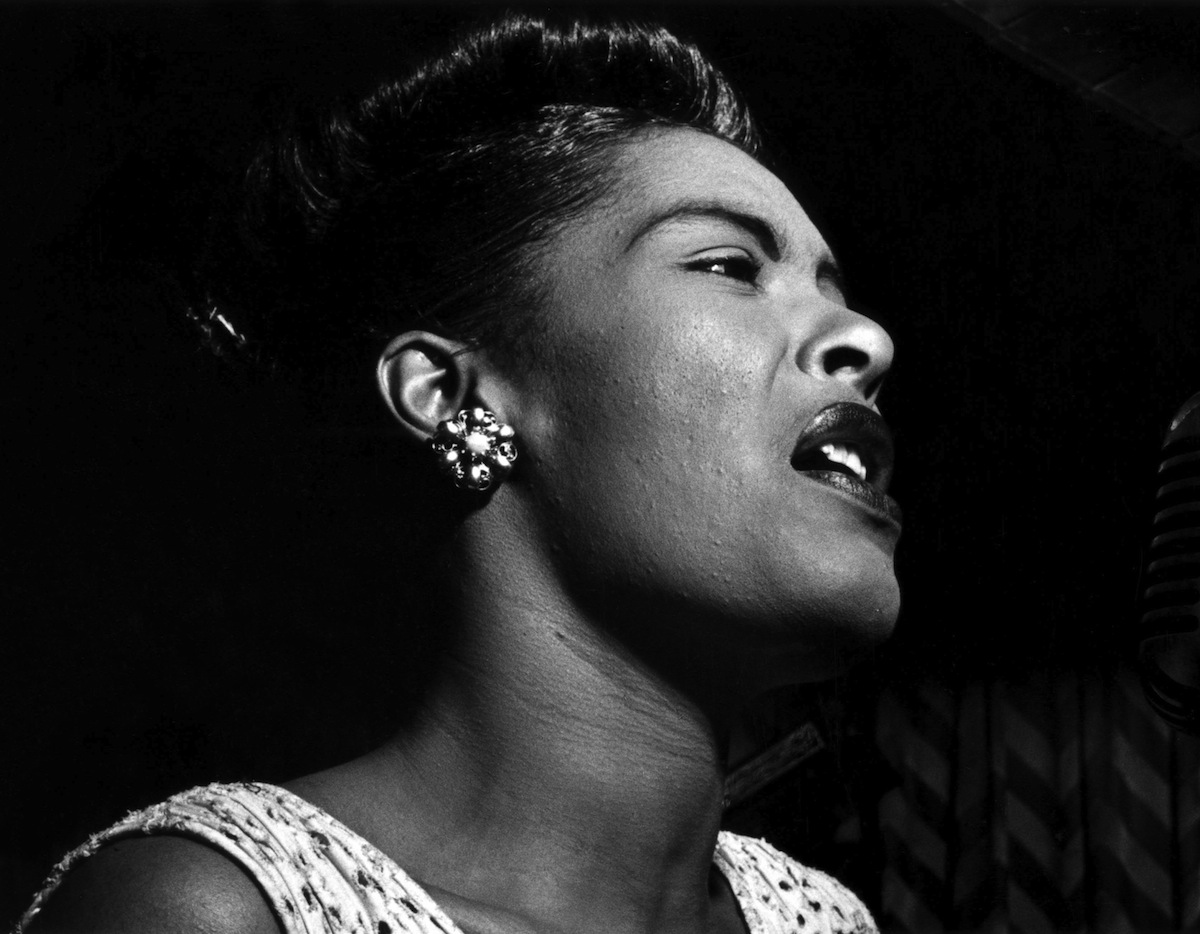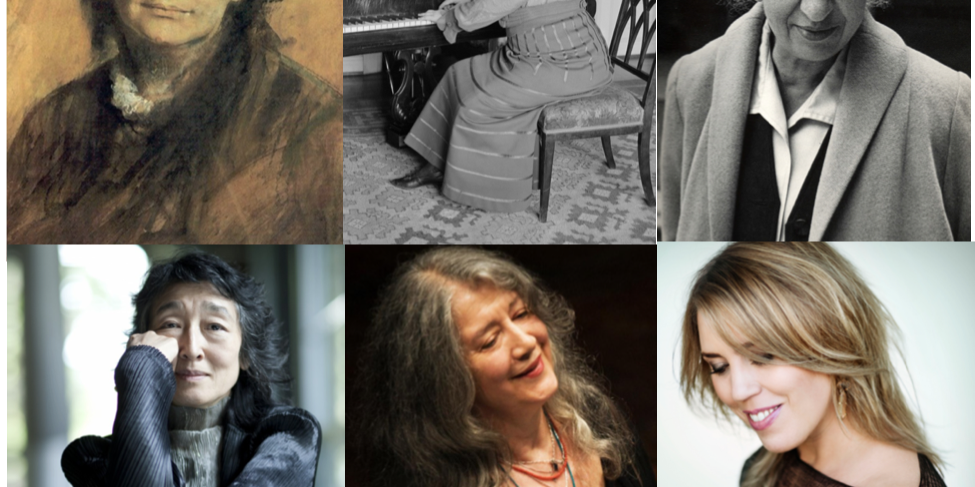Maybe you have heard about protests happening in the streets of the United States and elsewhere in the world, protests against police violence towards African Americans. Here at Liberty Park Music, we thought this would be an important time to expand the Music History Series with the goal of connecting music with current events. Music history doesn’t just teach us about great music of the past, but it also can shed light on political and cultural moments. With this article, we’re going to learn a little history through one song: Billie Holiday’s “Strange Fruit.” “Strange Fruit” is often referred to as the “first great protest song” and the first song of the Civil Rights Movement. In 1999 Time magazine named “Strange Fruit” the “song of the century.” Violence towards African Americans and other minorities is nothing new; Holiday's song from 1939 addresses this issue and, almost a century later, the violence still exists, although in different forms.
Now for some context about why this song was made and the world it was made in.
Lynchings by definition are extrajudicial (outside of the legal system) killings, which means that there is a defiance of law and order: no trial, no jury, no court judgement, no justice. Many victims were hunted down or kidnapped from a jail cell to then be tortured and hanged from a tree. Deaths were not always caused by the hangings; sometimes victims were beaten, shot, or burned to death before being hanged. From 1882 to 1968, there were at least 4,743 documented lynchings in the United States. The vast majority of these victims were African Americans who had been accused of something by their white neighbors. Many times, these accusations were as small as having glanced at a white woman or not crossing the street when they saw a white person coming. There were also accusations of rape. According to PBS, “most victims of lynching were political activists, labor organizers or black men and women who violated white expectations of black deference.” The purpose of the lynchings was to strike fear in communities of African Americans.
Lynchings were community sanctioned events, frequently publicized well in advance. Railroads would run special “excursion trains” to the locations where the lynchings were advertised to occur. People would dress up and travel from out of state just to witness the horrifying spectacle. The crowd size at some lynchings could swell to 15,000 people. Viewers would enshrine souvenirs from lynchings in their homes. Photographs of lynchings were the most innocuous of such souvenirs. Other frequent souvenirs included clothing, parts of the rope, fingers, toes, hair, genitals, and so on. The perpetrators of the lynchings were never punished for their actions.
Anti-lynching activists, supported by the National Association for the Advancement of Colored People (NAACP), fought against lynching at the risk of their own lives. These activists, like Ida B. Wells, would travel the country and write about these lynchings and try to get people to care about the publicly sanctioned murder of African Americans. Anti-lynching laws were proposed in the United States Congress as early as 1918, but were never signed into law. Public sentiment against lynching grew in the 20th century, but it wasn’t until the 1960s and the Civil Rights Movement in the United States that the number of lynchings drastically declined. Finally, in March 2022, the Emmett Till Anti-Lynching Act was signed into law by President Joe Biden.
In response to the epidemic of lynchings occurring in the United States, legendary jazz songstress Billie Holiday (1918–1959) recorded “Strange Fruit” on April 20, 1939. The text of the song was from a poem published in a newspaper by Jewish writer Abel Meeropol (pen name: Allan Lewis). Meeropol had seen something that was quite common for the time in his local newspaper, a photograph of a lynching, and he responded with the chilling poem. The text of the poem, originally titled “Bitter Fruit,” never actually names the event it responds to, but describes the scene of a lynching with the juxtaposition of stereotypical images of a beautiful, genteel south against gruesome details of a hanged body.
“Strange Fruit” by Abel Meeropol
Southern trees bear a strange fruit
Blood on the leaves and blood at the root
Black bodies swinging in the southern breeze
Strange fruit hanging from the poplar trees
Pastoral scene of the gallant South
The bulging eyes and the twisted mouth
Scent of magnolia, sweet and fresh
Then the sudden smell of burning flesh
Here is a fruit for the crows to pluck
For the rain to gather, for the wind to suck
For the sun to rot, for the tree to drop
Here is a strange and bitter crop.
The recording company with which Holiday had a contract, Columbia Records, refused to record the song in fear of a backlash. Instead, Holiday recorded it with Commodore Records. Holiday made the song an integral part of her performances, placing it as the closing song for her concerts. Holiday was not allowed to perform the song when she toured the southern United States. In fact, Holiday claims that when she tried to perform the song in Mobile, Alabama, she was chased out of town.
Embedded below are two recordings of Billie Holiday singing “Strange Fruit.” The first is the 1939 recording with Holiday and a jazz combo. The second is a 1959 live performance of Holiday with piano, recorded shortly before she died. Her recordings of “Strange Fruit” provoke a visceral reaction. The tempo is slow and solemn. The band (or piano) sets the atmosphere in a minor key that evokes devastation. The timbre of Holiday’s voice is grainy, which provides an emotional intensity to the lyrics. Holiday was known for singing “behind the beat” and stretching out musical phrases. She does this as well in “Strange Fruit,” slowing down at the end phrases, lingering on each line, not allowing the listener to ignore the text being sung. Holiday slides between pitches, emphasizing the emotion of particular words. As the lyrics become more gruesome, more dissonance is added. When Holiday sings in a short and detached manner or gets louder at the end of verses, the band follows and helps the emotional intensity grow.
As mentioned above, Holiday used this song as the closing piece of her performances. It was the last thing her audiences heard before going home and it lingered with them for the rest of the night. Imagine how that may have made her segregated audiences feel. Think about that in the span of less than one hundred years, the scene depicted here happened at least 4,743 times.
If you are interested in exploring more songs which talk about the African American experience in the United States or the Civil Rights Movement, we’ve compiled a playlist below:
https://www.youtube.com/playlist?list=PL7suIDfg1Zh8nFadiJ-6JuA8gMPzUsaJH
“Strange Fruit” has continued to have an impact on music, other artists have recorded the song, performed it in concerts, or sampled it to create a deeper meaning in their own songs. Well known versions of “Strange Fruit” also include Nina Simone’s version from 1965, which Kanye West sampled in “Blood on the Leaves” from his 2013 Yeezus album. “Strange Fruit” and other songs included in the above playlist highlight some of the violent racial history of the United States. Scholars of United States history link the legacy of lynching in the Jim Crow era to the epidemic of police violence against minorities today. In both situations, the accused are deprived of their right to a trial by jury and those that perpetrate the violence are not prosecuted. Becoming aware of this history and listening to this music can help us understand and empathize with people’s pain. It helps us to understand the current Black Lives Matter movement and why people are so passionate about criminal justice reform and ensuring equal rights for all.
Sources consulted for this article include:
- Clarke, Donald. “Holiday, Billie [Harris, Elinore; Fagan, Eleanora; Lady Day].” Grove Music Online. October 4, 2012. https://doi-org.uiwtx.idm.oclc.org/10.1093/gmo/9781561592630.article.A2228483
- Davis, Angela. Blues Legacies and Black Feminism: Gertrude “Ma” Rainey, Bessie Smith, and Billie Holiday. New York: Random House, 1998.
- Fortin, Jacey. “Congress Moves to Make Lynching a Federal Crime After 120 Years of Failure.” The New York Times. February 26, 2020. https://www.nytimes.com/2020/02/26/us/politics/anti-lynching-bill.html.
- Frisken, Amanda. “‘A Song Without Words’: Anti-Lynching Imagery in the African American Press, 1889-1898.” The Journal of African American History 97, no. 3 (Summer 2012): 240-269. doi:10.5323/jafriamerhist.97.3.0240.
- Margolick, David. “Strange Fruit.” Vanity Fair. September 1998. https://archive.vanityfair.com/article/1998/9/strange-fruit.
- “History of Lynchings.” National Association for the Advancement of Colored People (NAACP). https://www.naacp.org/history-of-lynchings/.
- Pak, Eudie. “The Tragic Story Behind Billie Holiday’s ‘Strange Fruit.’” Biography.com. May 27, 2020. https://www.biography.com/news/billie-holiday-strange-fruit.
- PBS. “The Murder of Emmett Till: Lynching in America.” https://www.pbs.org/wgbh/americanexperience/features/emmett-lynching-america/.
- Waldrep, Christopher. “War of Words: The Controversy Over the Definition of Lynching, 1899-1940.” The Journal of Southern History 66, no. 1 (Feb. 2000): 75-100. https://www.jstor.org/stable/2587438?seq=1.




